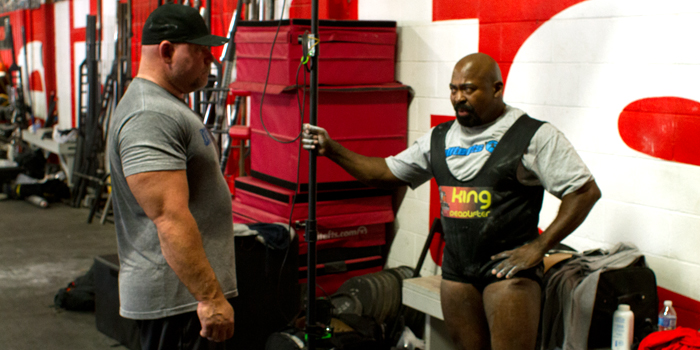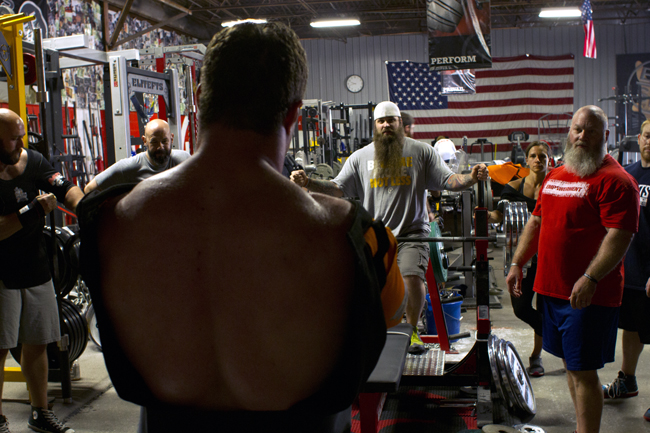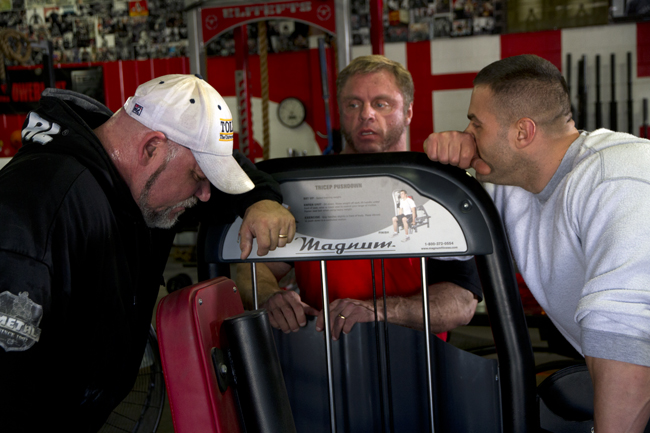
Teacher: Okay class, let’s introduce ourselves one by one by saying our major and what you want to do when you graduate. Let’s start with you, in the back of the room.
Student 1: I guess criminal justice or something, maybe be a scientist.
Student 2: My dad is a biology teacher, so I’m going to do that.
Student 3: I am going to be a successful chef in a professional restaurant. In order to do this, I need to major in culinary school, intern, and get exposed to as many cooking skills as possible.
Life is a playground, you just need to find which toy, which path, and which obstacle you want to overcome. Flashback to elementary school, the first student is scared because this playground is overwhelming. The fear of falling and failing is unbearable, which makes him/her not want to try something else. Student 2 was already given the path, and will get through it because of other people's help. However, Student 3 is a fearless, and independent first grader. He starts from one side of the playground, failing and failing again until he finds that one obstacle he can get through. Every day when he goes out on that playground, he goes to that same path, and he gets through it as fast as he can. Student 3 is much better off than the rest, because he has the ability to succeed. He has learned to hurdle life’s obstacles.

So what is success? How do you know you have achieved success? To be successful, some people think it comes down to being remembered. Most people view Bill Gates as successful because of his money and the monolith of Microsoft. Arnold Schwarzenegger has been deemed successful because of his bodybuilding domination. Do you get the picture? This success is classified as social success because it comes from goals that are set in today’s society. The amount of media today tends to make people lean toward trying to get this form of success. An example of this is seeing a professional powerlifter being able to squat over 800 pounds. People are amazed at the weight, go in the gym, miss a 250-pound squat, and then say screw it and give up. People need to see all the steps of hard work, dedication, and success every day to make that squat. That’s where self-success comes in.
Self-success is the most powerful form of success, and is crucial in order to create stepping stones towards an ultimate goal. This self-success is not public, and is tailored to you and you only. Powerlifters are mainly run on this success. In order to achieve this kind of success, one would set a goal, big or small such as losing 10 pounds or becoming first in the world for their weight class; no matter what, set a goal. Depending on if you are Student 3 or not, you will either kick your own ass to get in the gym, or you will make stupid excuses. When you achieve your goal, you simply make a new one and keep going. I recommend viewing success this way because of the fact that it’s based on your goals in life. Bill Gates doesn’t want to be the strongest man alive, but I’m assuming he feels successful owning one of the biggest technology corporations in the world. When you set goals and keep achieving higher levels of self-success, you will eventually get to the point of social success.
Students 1 and 2 are lost in life, and that’s because they are lacking goals. The lack of goals will severely hurt you. You will have no motivation, dedication, or hard work towards anything that you do because you do not know what you want to work hard toward. Although Student 2 has a set path, he has no dedication and goals towards his future, and that will just lead to a mediocre life. No one wants to be mediocre. Student 2’s idea of having a set path or having no path is not only for students. Middle aged, older, younger men and women who live the same days over and over and get no results, going to a job you hate going to, lifting the same weights and eating the same foods. Being fifth in Connecticut for wrestling, I constantly see Student 2 going to practice, picking the same partner to slack off with, and eventually going nowhere with wrestling. If you live your life the same you will stay the same.

Now let’s talk about Student 3 briefly. He found that obstacle he loves, he challenges himself everyday through goal-setting, and he will succeed if he continues that method. My solution to Students 1 and 2 is to do exactly as Student 3, and find that calling.
How do you do that? Pick something you love doing! If its ping pong, then you pursue the hell out of ping pong. Can’t find something you love? Go out and experience new things, meet new friends in your school or your workplace in order to find different paths, do whatever it takes to find that passion for something. From there, it is simple. You aren’t forced to do something in life like Student 2, and so you will just need to make goals and work hard to get them. First off, make a huge goal. Being the best in your state, your country, or even the world. Being the CEO of the company that you work for, anything will work. Set it as high as you think you can achieve in your lifetime. From there, you set small goals. If you want to deadlift 900 pounds in your life, and you’re currently deadlifting 300, then next month, try going for 310, then the next month try 320, and so on. Make a plan, stick to it, and work hard to achieve your small goals.
Find your true calling and pursue the hell out of it, be proud of it, and make it your life. Don’t let the fear and anxiety of failing or being embarrassed get you down. This process will help you be successful in life and ultimately enjoy a better, and less than average, one. It takes a little motivation and some trial and error to find which obstacle suits your playground obstacle.
Kevin Cecio is a student at Westfield State University studying Exercise Science. He’s been involved with powerlifting since his freshman year of high school, learning under the wings of columnist Erik Eggers.









1 Comment